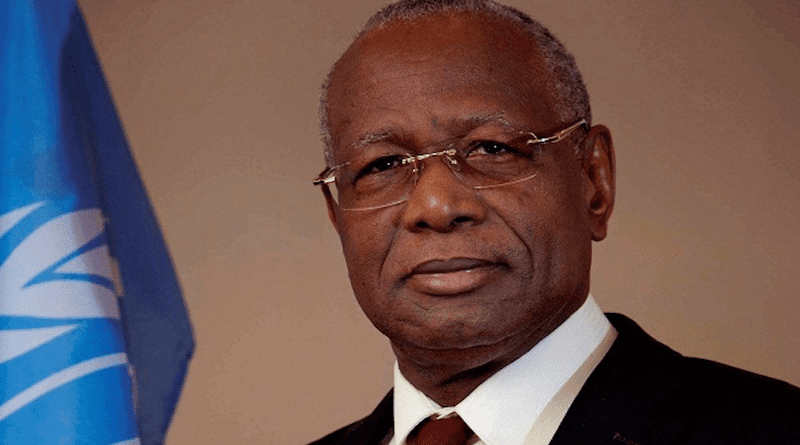Libya: UN Envoy Struggling To Solve Challenges As Rebels Sabotage Peace Plans – OpEd
UN Envoy Abdullah Bathily identified new tasks for the committee that were proposed according to his initiative last February regarding holding Libyan elections in 2023.
As stated, Bathily said that the elections in Libya not only need a constitutional and legal framework, but also require addressing many issues, which include providing a safe environment for elections, ensuring freedom of movement for candidates during electoral campaigns, and providing an equal ground for free and honest competition between candidates. The tasks included agreeing to accept the election results, adopting a code of conduct that everyone adheres to, approving a transparent and fair government spending mechanism, and addressing any political or social issues.
Focusing on the possibility of developing a clear road map based on the preparation of the security and military tracks to ensure the safety of the environment surrounding the elections. And the establishment of a committee working to bring together various Libyan stakeholders, including political institutions, prominent political figures, tribal leaders, civil society organizations, security agencies, and women’s and youth’s representatives.
Moreover, while civil society plays an important role, Mohamed Manfi, President of the Presidential Council, and the co-chairs of the Working Group on International Humanitarian Law and Principles of International Human Rights Law made recommendations based on consultations with more than 500 Libyan citizens. The document included human rights issues in addition to the measures required to protect gains and overcome obstacles, leading to the promotion of human rights in Libya, according to what was published by the United Nations Support Mission in Libya (UNSMIL). The dialogue focused on impunity and stressed the need to reform and strengthen the justice system, with a focus on investigating and prosecuting perpetrators of human rights violations. Violations and abuses on human rights issues, exclusion, and marginalization are among the causes of conflict and instability in Libya.
Nevertheless, the dialogue focused on concerns about the armed groups that have proliferated in all parts of Libya, which emphasizes that the security file is a requirement and important for the next stage. While the focus of the next stage is on the importance of ensuring basic rights, such as access to basic services, freedom of expression, assembly, association, and political rights, including the right to vote and political participation.
Likewise, civil society organizations and non-governmental organizations rejected it due to its lack of legitimacy, and NGOs and NGOs confirmed in a statement that the inference made by the Law Department of the Supreme Judicial Council regarding Articles (15) and (34) contained in the Interim Constitutional Declaration is misplaced and contradicts the outcome of the opinion. The two articles call for guaranteeing the protection of rights and freedoms and ensuring the formation of civil society organizations and the freedom of their work. It also described civil society organizations as committing violations, distortions, and betrayals that posed a threat to rights and freedoms in Libya, calling on the Supreme Judicial Council as the guarantor and protector of rights.
In addition, other attempts at external reform, as Foreign Minister Mevlüt Çavuşoğlu’s stated that Turkey’s agreement with Libya regarding the areas of maritime authority does not contradict Egypt’s interests. Egypt and Greece do not conflict with the interests of Ankara. And that Turkey is now working for the stability of Libya. Egypt objects to the hydrocarbon exploration agreement in the eastern Mediterranean because the current government in Libya cannot sign the agreements because its mandate has expired and it is no longer legitimate, and Turkey asserts that it is not a problem as each country can sign hydrocarbon agreements with any other country.
As Cavusoglu confirmed, Ankara is negotiating with western and eastern Libya, and communication with the Libyan parties and Khalifa Haftar does not change the fact that we only recognize the legitimate government, that there are various forces currently in Libya, and our military presence in this country comes within the framework of an agreement. This presence is currently the most legitimate in Libya, and it is necessary to establish a regular army for the sake of the unity of Libya. Turkey still wants to stay in Libya, but through illegal agreements and methods with illegal governments.
While Haftar’s role in the region has an impact, Barbara A. Leaf, the United States Department of State, and a delegation headed by Special Envoy Richard Norland and Chargé d’affaires Leslie Erdman arrived Monday in Benghazi and met with Khalifa Haftar to discuss political developments. Supporting the efforts of the United Nations Support Mission in Libya, through coordination with the High Council of State and the House of Representatives, to develop the necessary legislation for holding elections before the end of 2023 and drafting election laws Barbara announced the names of the members of the House of Representatives who were elected to represent the House of Representatives in the joint “6 + 6” committee with the Supreme Council of State, which will undertake the preparation of electoral laws in accordance with the thirteenth constitutional amendment.
The head of the United Nations mission also stressed that Libyan women must support the elections and include female election candidates, academics, members of municipal councils, civil society actors, and activists to discuss his new initiative regarding elections. Women must participate in the political field, far from harassment or any form of threat. He stressed that Libya has all the resources and capabilities to go out on the path of peace, but people must assume responsibility and work to increase the representation of women in the political process, including in preparing for elections and as candidates.

